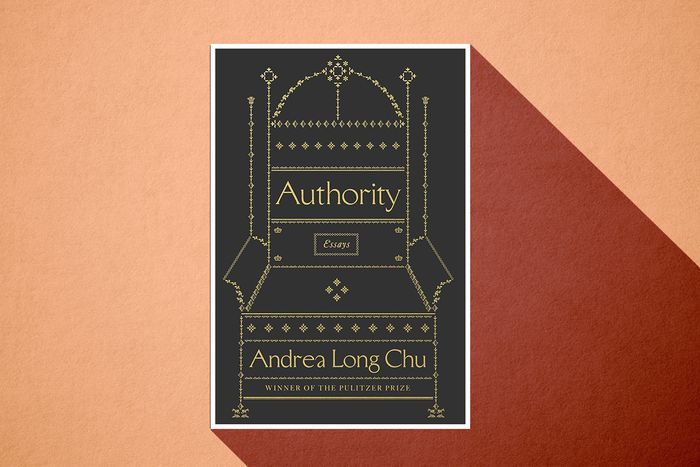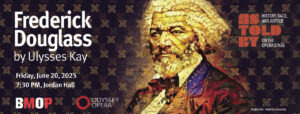This month, our own Andrea Long Chu published Authority , a collection of her work across New York Magazine, n+1 , and other publications. It includes two new essays on the state and history of criticism, taking us from the 18th century through the present. In recent years, it has become common to say that criticism is in a state of crisis.
It turns out, Chu writes, people have been saying this ever since criticism first became a thing. The real crisis, she argues, is in the unwillingness to see criticism as an inherently political project. Recently, Chu spoke about all this and more with Arielle Angel, editor of Jewish Currents , at her book launch at the Center for Fiction in New York.

In your second new essay, which the book is named for, you write about how criticism is a place where critics themselves work out their ideal relationship to the state and to authority itself. This Kant quote you cite was so striking to me: “Argue as much as you want and about what you want, but obey.” This is Kant’s maxim for enlightenment.
It’s very interesting how it resembles the way we continue to be told that we should think about art. I have, on occasion, been told I’m not doing criticism — I’m doing something else: I’m profiling; I’m writing political essays. And it’s not that I would even deny that I have failed.
I think the point is that there is no one who doesn’t fail. One of the problems running through criticism — basically as soon as it becomes conscious of itself — is that the authority for an aesthetic judgment is not going to be found on some objective basis. There is always going to be that fallout of this nice, contemplative mode into something that has a political interest or a moral interest or a personal one.
It’s very different from some empirical judgment about whether or not there is a chair there. But whether or not a play was good? I just saw Gypsy today, and it was not very good, but how am I supposed to prove that? I believe you. Thank you.
So because I can’t refer to some objective basis, there is this desire to rationalize criticism into something more than just I like this; you don’t like this . But in order to rationalize it, you have to suppose that there is actually a reason why this production of Gypsy is not so good. The problem is once you start giving the reasons, they all turn out to be bad ones.
So you end up with this perpetual cycle of people proposing, “Well, maybe these particular rules about how a poem should be put together, maybe that could be the standard.” And then once you start applying that standard, it loses its vitality. In the 18th century, a consensus emerged that we have to assume there is a reason underlying the aesthetic judgment, but no one gets to decide what the reason is.
Maybe then we will be able to tolerate disagreement with each other in a way that doesn’t upset anything. We’ll all still be rationally oriented toward the idea of something beautiful. In this way, criticism is connected to this liberal tradition where a certain kind of faith is put into the idea of the law — that the law itself as an idea matters more than whatever happens to be in the law, which is why all of the people watching the French Revolution were like, It’s terrible to overthrow a king .
But, also, once the new person is king, it would be terrible to overthrow him, too, because it’s the seat of authority. The seat is the most important thing. So when we’re told that criticism, especially on college campuses, is about making us better global citizens, part of what’s happening there is that there’s a long tradition of criticism as an apprenticeship in thoughtful obedience.
You’re going to think about the world, you’re going to refine your opinions and your judgments, but you’re never actually going to have to settle them. In the book, there are these amazing little writer’s notes, and this is one from an essay about Joey Soloway : “In truth, this essay was not about Soloway at all. It was about a similarly irritating person of my own acquaintance who is not famous enough to be worth writing about.
It is a vicious piece, which I would distinguish from a cruel one. Viciousness is the attack dog who has not eaten in three days. Cruelty is the person calmly holding the leash.
These days, I aim for cruelty.” I want to ask you about cruelty, but I also want to ask you about love and care in relation to this. Some of the harshest essays here almost strike me as psychoanalytic, where you are the analyst, which is a caretaker role.
You diagnose Hanya Yanagihara with Munchausen syndrome by proxy. You read Zadie Smith’s novel The Fraud point for point through this horrible James Wood pan of White Teeth . In the Andrew Lloyd Webber piece , I actually don’t know if you love or hate him.
I feel like you’re trying to tell me you hate him, but actually you love him and that’s okay because I do, too. So what is the interplay between cruelty and love, and what does it mean to aim for cruelty and end up at love? One of the things about when I say cruelty instead of viciousness is that viciousness is a form of dependency — I really need the object in that moment. If I’m just attacking it, I haven’t moved past my own initial impression or my own desire for the object to see me.
You’re not in control, in other words. Right. And so you’re rushing out and flailing your arms.
Cruelty, I think, is a kind of respect. I am going to try to actually disentangle my impression of you from you. I’m going to try and treat you as someone else who exists, which is a very difficult thing to do.
Cruelty is also withholding. It’s being the least harmful that you could possibly be. That’s why it’s so painful: It means that the rest of the pain is necessary.
I’m not just going to destroy you — I want to show that you matter to me. What is the line in The Princess Bride ? “I would sooner destroy a stained-glass window than an artist like yourself.” I’m looking for someone to fight, not someone to run over with my car.
I am wandering the countryside looking for someone who can kill me. I really want the person to be there. I feel sad after those pieces are over because they’re gone.
The relationship is over, in a way. I miss them. And then when I see their next book, after the one I reviewed, I have that sense of seeing an ex across the street and being like, Ah .
.. I know I shouldn’t say anything and we have to just go about our lives, but there was that moment we had.
So I agree: It’s very intimate. Artists reserve a right to not know what they’re doing. I think that’s fine.
An artist who knows what they’re doing can be equally or more irritating. But my job is not to endorse their ignorance. I am here to be like, Well, okay, now let’s try and figure out what this is about.
You mentioned psychoanalysis. I think it is like trying to move the writer from a psychotic position to a neurotic position. It’s just like, Okay, this has happened.
This work of art has happened, and now let’s all try to occupy the same reality . As for love, the Phantom piece is a good example of something where, yes, I do think he’s quite bad. He’s very, very bad.
But I love musical theater and that love is abiding, and if it could be conquered by disappointment, it would have been conquered by now. Similarly, there is work by Ottessa Moshfegh that is very deeply compelling and interesting to me. To me, it’s like, What’s the point of loving something if I don’t at least reserve the right to be negative about it? I want a mature relationship with the thing.
What I do for a living should be more like writing the instruction manual for a vacuum cleaner than writing a Schoenberg quartet. I have a duty to communicate with the reader. It can be pretty.
I try to write pleasing sentences. But the pleasing sentences aren’t what makes it criticism. They’re maybe part of what makes it good criticism, but they’re not what makes it criticism.
What makes it criticism, on a very basic level, is that I have an idea, and I would like you who are reading it to have that idea by the time you are done reading it. And so I am going to employ language to move that idea from me to you. I want to talk about your early n+1 essays in this book.
I noticed something on this reading that I didn’t when I read those essays at the time. This phrase comes up again and again about “feeling political.” There’s a way that politics is discussed almost as accoutrement or guilty pleasure.
In a review of Lexi Freiman’s Inappropriation , you say of the main character in the book: “Ziggy uses the political as an excuse for belonging. Are you telling me you don’t?” There’s an essay in here recounting some events in the lesbian-separatist-feminist scene in 1971, and you write, “It’s a sober reminder that much of what we remember as women’s liberation was just some stuff that happened at some parties.” I think your vantage on politics has shifted a lot over time and even in this book.
Even in the ways that this may evince a kind of a suspicion about politics, or how deep our political feelings are, or whether there is something false about the way we inhabit our politics. I think you’re actually quite right on in these essays, and that even those of us who consider ourselves more serious or materialist political actors are more enthralled by this political affect than we’d like to admit. How do you feel about that stuff now? That’s a really interesting question because in these early essays I wrote for n+1 , there’s a pessimism there — a pessimism about the possibility of authentic political action.
Because how are you to engage with it without also bringing your whole personal, private psychic apparatus? Isn’t that always going to get in the way? Of course, I could be and have been accused of basically trying to feel political through the work that I’m doing now at New York Magazine — that it’s posturing and that I’m trying to use these books to feel a certain way about myself. Which I am, because they’re part of my experience. The way I would recast that assessment now is to say yes, not all action is the same.
There are actual material events. People do things or they don’t do things. But the thing that distinguishes good politics from bad politics — and I mean not in terms of right and left but within the left in terms of the way it fights with itself — is not actually whether or not the “feeling political” part is present.
Because it’s present across the board. It’s the kind of thing everyone will point out in order to delegitimate each other. The idea that you might read a particular book in order to feel political, which is to say in order to feel like you are part of a larger historical force — that’s always going to be a ridiculous thing.
But it’s just a version of the fact that most of the time when people read books or watch shows, they’re just developing a relationship to other people or they’re creating a certain kind of self for themselves. So that desire is always present. You’re very attentive to belonging, which is a real political force that, on some level, we don’t utilize or think about enough.
There’s a way of denigrating political affect, but in the political sphere, our feelings are facts. They’re the terrain of our organizing sometimes. So we can’t actually separate those things.
One way to put that succinctly is that actual political life is less like writing a review of a novel and more like being involved in a fan culture or going to a book club. I’m going to venture to disagree with you on something. It’s maybe not so much a disagreement but a question of focus.
You have a number of essays in here that deal with the liberal writer and critic in the form of Maggie Nelson and Zadie Smith. I do feel like we have to look at the fact that we’ve lost as a left — and particularly that some of the ways we’ve lost are related to some of the identitarian excesses. They’re not the No.
1 reason, but there is a way in which our internal conversation has been impoverished by some of these dynamics. And in these essays, you will say, “Good point, fair point, Maggie Nelson, but this is boring. Who cares?” I’m curious about that dismissal.
What is the responsibility of the left critic for self-criticism? It’s a worthwhile question. I’m aware of what you’re talking about: that there are moments when I will say, “Yes, there are excesses here, but I’m going to talk about this.” The first easy answer is just that the thing I end up writing about instead is what I see as the excesses of centrism — things that go more unremarked and for which we lack a proper theoretic apparatus.
I’m trying to open up a different field of conflict. Another part of it is just that this is where my particular energies are best spent. It’s the thing I’m good at.
But, also, when we talk about the identitarian excesses of the left, there is a lot of murkiness in terms of what we’re referring to — what the excesses are exactly. We’re seeing the identity problem very clearly in the case of trans kids: You’re being told that your child is going to come home and use other pronouns and then they’re going to destroy your house and take all your money. This was and still is an example of “excess.
” And, look, interpersonally I know lots of annoying queer people. But what we are seeing on a day-to-day basis now is that the manner by which the center has prepared the way for the right to come and try to genocide trans people is the very same identity model that they are always calling an excess of the left. And now the right has taken an explicitly identitarian model of “trans” as a thing you inherently are, and they are using it to say, “Okay, there are people who are trans and people who aren’t.
” And then over time, they will just funnel more people into the “aren’t” category and eventually define people out of existence. In some cases, did those categories originate among the left, or did we co-create them? Absolutely. But in terms of why I would write an essay, it would be to say these supposed excesses are actually the machines that they have seized and are now turning around and directing at us.
So if criticism in this schema is an analogue for our relationship to the state, what is the responsibility in an autocratic, fascist moment? I don’t think that criticism is going to defeat fascism, but I do think people should do it. The more important thing is to write something that is trying to develop a serious relationship with the reader. I say in the book that the only measure of judgment is more judgment, that sense of Well, we’ll have to revisit this.
We’ll have to keep doing this . In a small way, that is something I hope criticism can do — at least something that it can do for me as one of the 15 people who are actually getting paid to do criticism. But that is a material question; it’s not a method question.
So on a practical level, if you’re being paid $100 for a thousand words, you should turn in $100 worth of content. Give them exactly what they pay for, because they’re not paying for good work. If you’re going to get paid pennies to train someone’s AI, at least you should be doing as little work as possible.
This conversation has been edited and condensed..
Entertainment

‘I’m Looking for Someone to Fight, Not Someone to Run Over With My Car’

Andrea Long Chu on her new book, Authority; the so-called crisis of criticism; and how she chooses her subjects.














